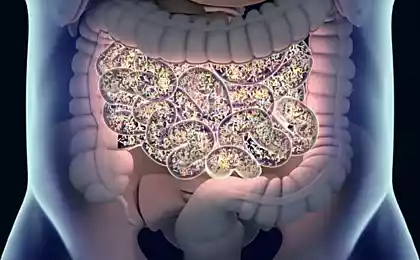180
Help your gut improve your sleep

What we eat directly affects the quality of sleep. Food doesn’t just satisfy hunger; it’s a complex biochemical process that affects all body systems, including sleep. Recent research in neurogastroenterology reveals a surprising connection between the gut and brain that could be the key to healthy sleep.
The gut as a second brain
The enteric nervous system, often referred to as the second brain, contains about 100 million neurons. Studies show that the gut microbiome produces more than 90% of serotonin and significant amounts of melatonin – key neurotransmitters that regulate sleep.

How the gut affects sleep quality
1. Production of melatonin
Intestinal bacteria are involved in the synthesis of tryptophan, an amino acid necessary for the production of melatonin. Research shows:
- Healthy microbiome can increase melatonin production by 15-20%
- Dysbacteriosis reduces the effectiveness of melatonin synthesis
- Certain probiotics can increase the production of the “sleep hormone”
2. Regulating circadian rhythms
The microbiome has its own circadian rhythms synchronized with our own. Violation of these rhythms can lead to:
- Problems with falling asleep
- Frequent nighttime awakenings
- Daytime sleepiness
Foods for healthy sleep

Natural sources of tryptophan
- Turkey and chicken meat
- Pumpkin seeds
- Almonds and walnuts
- Bananas
- Oatmeal
Prebiotics for a Healthy Microbiome
Studies show that regular use of prebiotics can improve sleep quality by 20-25%. Main sources:
- Garlic and onions
- Artichokes
- Asparagus
- Green bananas
- chicory
Practical recommendations
Time to eat
- Last meal 2-3 hours before bedtime
- Light snack rich in tryptophan an hour before bedtime
- Avoiding heavy food in the evening
The best menu for healthy sleep
Morning:
- Oatmeal with banana and almonds
- Yogurt with live cultures
Day:
- Lentils soup
- Artichoke salad
Evening:
- Turkey with green vegetables
- Herbal tea with honey
Scientifically proven effects
Recent studies have shown:
- Improved microbiome could cut sleep time by 40%
- Proper nutrition increases the duration of the deep sleep phase
- A healthy gut promotes more stable circadian rhythms
What to avoid
- Caffeine after 14:00
- Alcohol before bedtime
- Sharp and fatty foods in the evening
- A large amount of sugar
Conclusion
Bowel health plays a key role in the quality of our sleep. Proper nutrition, attention to your microbiome and adherence to a diet can significantly improve sleep quality and overall well-being. Remember that changes in diet take time – the first results can be seen after 2-3 weeks of regular follow-up.
By investing in your gut health today, you’re getting a healthy sleep tomorrow. Start with small changes and gradually move towards a more comprehensive approach to taking care of your microbiome.
Favorite Books: 5 Billionaires
When There Are No Limiting Beliefs: How Cliff Young, 61, Became a Supermarathon Winner























